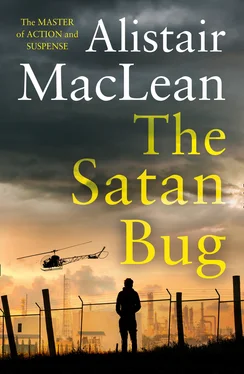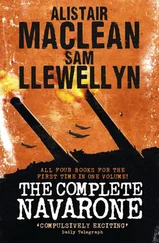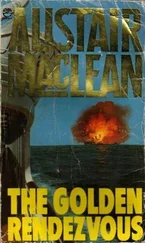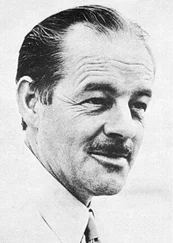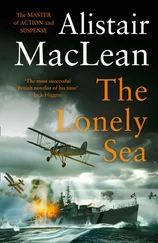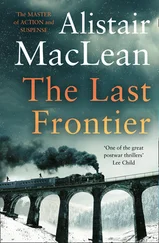Alistair MacLean - The Satan Bug
Здесь есть возможность читать онлайн «Alistair MacLean - The Satan Bug» — ознакомительный отрывок электронной книги совершенно бесплатно, а после прочтения отрывка купить полную версию. В некоторых случаях можно слушать аудио, скачать через торрент в формате fb2 и присутствует краткое содержание. Жанр: unrecognised, на английском языке. Описание произведения, (предисловие) а так же отзывы посетителей доступны на портале библиотеки ЛибКат.
- Название:The Satan Bug
- Автор:
- Жанр:
- Год:неизвестен
- ISBN:нет данных
- Рейтинг книги:5 / 5. Голосов: 1
-
Избранное:Добавить в избранное
- Отзывы:
-
Ваша оценка:
- 100
- 1
- 2
- 3
- 4
- 5
The Satan Bug: краткое содержание, описание и аннотация
Предлагаем к чтению аннотацию, описание, краткое содержание или предисловие (зависит от того, что написал сам автор книги «The Satan Bug»). Если вы не нашли необходимую информацию о книге — напишите в комментариях, мы постараемся отыскать её.
The Satan Bug — читать онлайн ознакомительный отрывок
Ниже представлен текст книги, разбитый по страницам. Система сохранения места последней прочитанной страницы, позволяет с удобством читать онлайн бесплатно книгу «The Satan Bug», без необходимости каждый раз заново искать на чём Вы остановились. Поставьте закладку, и сможете в любой момент перейти на страницу, на которой закончили чтение.
Интервал:
Закладка:
We came to number one lab—and Clandon. Clandon was lying just outside the massive steel door of the laboratory, but he wasn’t any more the Neil Clandon I used to know—the big, tough, kindly, humorous Irishman who’d been my friend over too many years. He looked curiously small now, small and huddled and defenceless, another man altogether. Not Neil Clandon any more. Even his face was the face of another man, eyes abnormally wide and starting as one who had passed far beyond the realms of sanity into a total and terror-induced madness, the lips strained cruelly back over clenched teeth in the appalling rictus of his dying agony. And no man who looked at that face, at the convulsively contorted limbs could doubt that Neil Clandon had died as terribly as man ever could.
They were all watching me, that I was vaguely aware of, but I was pretty good at telling my face what to do. I went forward and stooped low over him, sniffing, and found myself apologising to the dead man for the involuntary wrinkling distaste of nose and mouth. No fault of Neil’s. I glanced at Colonel Weybridge and he came forward and bent beside me for a moment before straightening. He looked at Wilkinson and said, “You were right, my boy. Cyanide.”
I pulled a pair of cotton gloves from my pocket. One of Hardanger’s assistants lifted his flash camera but I pushed his arm down and said, “No pictures. Neil Clandon’s not going into anyone’s morgue gallery. Too late for pictures anyway. If you feel all that like work why don’t you start on that steel door there? Fingerprints. It’ll be loaded with them—and not one of them will do you the slightest damn’ bit of good.”
The two men glanced at Hardanger. He hesitated, shrugged, nodded. I went through Neil Clandon’s pockets. There wasn’t much that could be of any use to me—wallet, cigarette case, a couple of books of matches and, in the left hand jacket pocket, a handful of transparent papers that had been wrapped round butterscotch sweets.
I said, “This is how he died. The very latest in confectionery—cyanide butterscotch. You can see the sweet he was eating on the floor there, beside his head. Have you such a thing as an analytical chemist on the premises, Colonel?”
“Of course.”
“He’ll find that sweet and possibly one of those butterscotch papers covered with cyanide. I hope your chemist isn’t the type who licks his fingers after touching sticky stuff. Whoever doctored this sweet knew of Clandon’s weakness for butterscotch. He also knew Clandon. Put it another way, Clandon knew him. He knew him well. He knew him so well and was so little surprised to find him here that he didn’t hesitate to accept a butterscotch from him. Whoever killed Clandon is not only employed in Mordon—he’s employed in this particular section of ‘E’ block. If he weren’t, Clandon would have been too damn’ busy suspecting him of everything under the sun even to consider accepting anything from him. Narrows the field of inquiry pretty drastically. The killer’s first mistake—and a big one.”
“Maybe,” Hardanger rumbled. “And maybe you’re oversimplifying and taking too much for granted. Assumptions. How do you know Clandon was killed here? You’ve said yourself we’re up against a clever man, a man who would be more likely than not to obscure things, to cause confusion, to cast suspicions in the wrong place by killing Clandon elsewhere and then dragging him here. And it’s asking too much to believe that he just happened to have a cyanide sweet in his pocket that he just happened to hand to Clandon when Clandon just happened to find him doing what he was doing.”
“About the second part I don’t know,” I said. “I should have thought myself that Clandon would have been highly suspicious of anyone he found here late at night, no matter who he was. But Clandon died right here, that’s for sure.” I looked at Cliveden and Weybridge. “How long for cyanide poisoning to take effect?”
“Practically instantaneous,” Cliveden said.
“And he was violently ill here,” I said. “So he died here. And look at those two faint scratches on the plaster of the wall. A lab check on his fingernails is almost superfluous; that’s where he clawed for support as he fell to the floor. Some ‘friend’ gave Clandon that sweet, and that’s why I’d like the wallet, cigarette case and books of matches printed. There’s just a chance in a thousand that the friend may have been offered a cigarette or a match, or that he went through Clandon’s wallet after he was dead. But I don’t think there’s even that chance in a thousand. But I think the prints on that door should be interesting. And informative. I’ll take a hundred to one in anything you like that the prints on that door will be exclusively of those entitled to pass through that door. What I really want to find out is whether there’s been any signs of deliberately smearing, as with a handkerchief or gloves, in the vicinity of the combination, time-lock or circular handle.”
“There will be,” Hardanger nodded. “If your assumption that this is strictly an inside job is correct, there will be. To bring in the possibility of outsiders.”
“There’s still Clandon,” I said.
Hardanger nodded again, turned away to watch his two men working on the door. Just then a soldier came up with a large fibre case and a small covered cage, placed it on the floor, saluted nobody in particular and left. I caught the inquiring lift of Cliveden’s eyebrow.
“When I go into the lab,” I said, “I go in alone. In that case is a gas-tight suit and closed circuit breathing apparatus. I’ll be wearing that. I lock the steel door behind me, open the inner door and take the hamster in this cage in with me. If he’s still alive after a few minutes—well, it’s clear inside.”
“A hamster?” Hardanger turned his attention from the door, moved across to the cage and lifted the cover. “Poor little beggar. Where did you acquire a hamster so conveniently?”
“Mordon is the easiest place in Britain to acquire a hamster conveniently. There must be a couple of hundred of them within a stone’s throw from here. Not to mention a few thousand guinea-pigs, rabbits, monkeys, parrots, mice and fowls. They’re bred and reared on Alfringham Farm—where Dr. Baxter has his cottage. Poor little beggar, as you say. They’ve a pretty short life and far from sweet one. The R.S.P.C.A. and the National Anti-Vivisection Society would sell their souls to get in here. The Official Secrets Act sees to it that they don’t. Mordon is their waking nightmare and I don’t blame them. Do you know that over a hundred thousand animals died inside these walls last year—many of them in agony. They’re a sweet bunch in Mordon.”
“Everyone is entitled to his opinions,” General Cliveden said coldly. “I don’t say I entirely disagree with you.” He smiled without humour. “The right place for airing such sentiments, Cavell, but the wrong time.”
I nodded, acknowledgement or apology, he could take it how he liked, and opened the fibre case. I straightened, gas-suit in hand, and felt my arm gripped. Dr. Gregori. The dark eyes were intense behind the thick glasses, the swarthy face tight with worry.
“Don’t go in there, Mr. Cavell.” His voice was low, urgent, almost desperate. “I beg of you, don’t go in there.”
I said nothing, just looked at him. I liked Gregori, as did all his colleagues without exception. But Gregori wasn’t in Mordon because he was a likeable man. He was there because he was reputed to be one of the most brilliant micro-biologists in Europe. An Italian professor of medicine, he’d been in Mordon just over eight months. The biggest catch Mordon had ever made, and it had been touch and go at that: it had taken cabinet conferences at the highest levels before the Italian government agreed to release him for an unspecified period. And if a man like Dr. Gregori was worried, maybe it was time that I was getting worried too.
Читать дальшеИнтервал:
Закладка:
Похожие книги на «The Satan Bug»
Представляем Вашему вниманию похожие книги на «The Satan Bug» списком для выбора. Мы отобрали схожую по названию и смыслу литературу в надежде предоставить читателям больше вариантов отыскать новые, интересные, ещё непрочитанные произведения.
Обсуждение, отзывы о книге «The Satan Bug» и просто собственные мнения читателей. Оставьте ваши комментарии, напишите, что Вы думаете о произведении, его смысле или главных героях. Укажите что конкретно понравилось, а что нет, и почему Вы так считаете.
